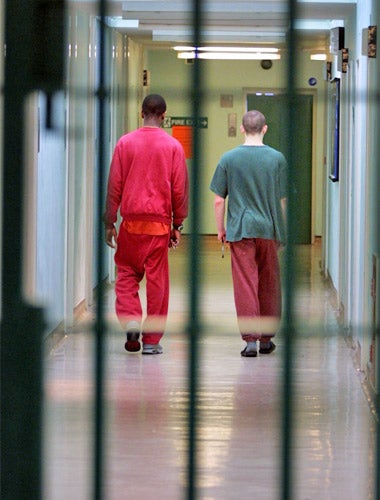Your support helps us to tell the story
From reproductive rights to climate change to Big Tech, The Independent is on the ground when the story is developing. Whether it's investigating the financials of Elon Musk's pro-Trump PAC or producing our latest documentary, 'The A Word', which shines a light on the American women fighting for reproductive rights, we know how important it is to parse out the facts from the messaging.
At such a critical moment in US history, we need reporters on the ground. Your donation allows us to keep sending journalists to speak to both sides of the story.
The Independent is trusted by Americans across the entire political spectrum. And unlike many other quality news outlets, we choose not to lock Americans out of our reporting and analysis with paywalls. We believe quality journalism should be available to everyone, paid for by those who can afford it.
Your support makes all the difference.MPs tonight overwhelmingly backed a Commons motion to continue denying prisoners the right to vote in defiance of the European Court of Human Rights (ECHR).
Pressure on the Government to defy a court's ruling against the UK blanket ban on prisoners voting intensified tonight when MPs overwhelmingly backed the status quo.
Attorney General Dominic Grieve promised to reflect the 234 to 22 decision in what he said would be "a drawn-out dialogue" with the European Court of Human Rights (ECHR).
Despite Prime Minister David Cameron declaring that the idea makes him "sick", fears of compensation claims running into millions of pounds have prompted reform plans.
They would see some 28,000 inmates serving less than four years being given the vote, although there have been signs that ministers could row back from that position.
Senior Tory MP David Davis - one of the leaders of the Commons debate - called on the Government to tell the ECHR it cannot "supplant" the role of Parliament.
"It is a brilliant result," the former shadow home secretary said.
"A 99% majority, which we believe also reflects the view in the country that prisoners should not be given the vote.
"The ball is now in the Government's court to go back to the ECHR and tell them that they cannot supplant the role of Parliament."
Mr Davis secured the debate along with Labour ex-home secretary Jack Straw, who accused the ECHR of going beyond its remit.
Responding to the vote, shadow justice secretary Sadiq Khan said: "We have been very clear that it is not Labour policy to give prisoners the vote.
"Despite several attempts to glean information from the Tory-led Government by me, and the lively debate in the House today, they have yet to explain how they intend to satisfy the European Court of Human Right's ruling.
"The Government must, as a matter of urgency, bring forward their draft legislation so Parliament and the public are clear about where they stand on this important issue."
But prison campaigners accused MPs of sending out a "poor" message about their commitment to rehabilitating offenders.
Juliet Lyon, director of the Prison Reform Trust, said: "In all conscience, MPs in today's debate had the opportunity to stand up for the fundamental human rights and dignity of everyone, obey the law and encourage the exercise of civic responsibility.
"A few made powerful speeches in defence of these principles.
"However, in a free vote, 234 MPs chose to hang on to the 19th century punishment of civic death enshrined in the 1870 Forfeiture Act.
"Although the vote is not legally binding on the Government, the message it sends to prisoners and people working in the Prison Service is a poor one.
"The outdated ban on prisoners voting has no place in a modern prison system, which is about rehabilitation and respect for the rule of law."
Mr Straw said: "I am delighted with both the fact and the scale of the vote, which underlines the strength of feeling in the House.
"It was a very sober and thoughtful debate.
"The motion was very carefully phrased so that it should strengthen the hand of the Government in going back to Strasbourg saying we have now met one of the objections of the court that the House of Commons had not held a substantive debate on this issue."
It would also show to the court that it would be "difficult if not impossible" to secure parliamentary approval of any relaxation of the ban.

Join our commenting forum
Join thought-provoking conversations, follow other Independent readers and see their replies
Comments